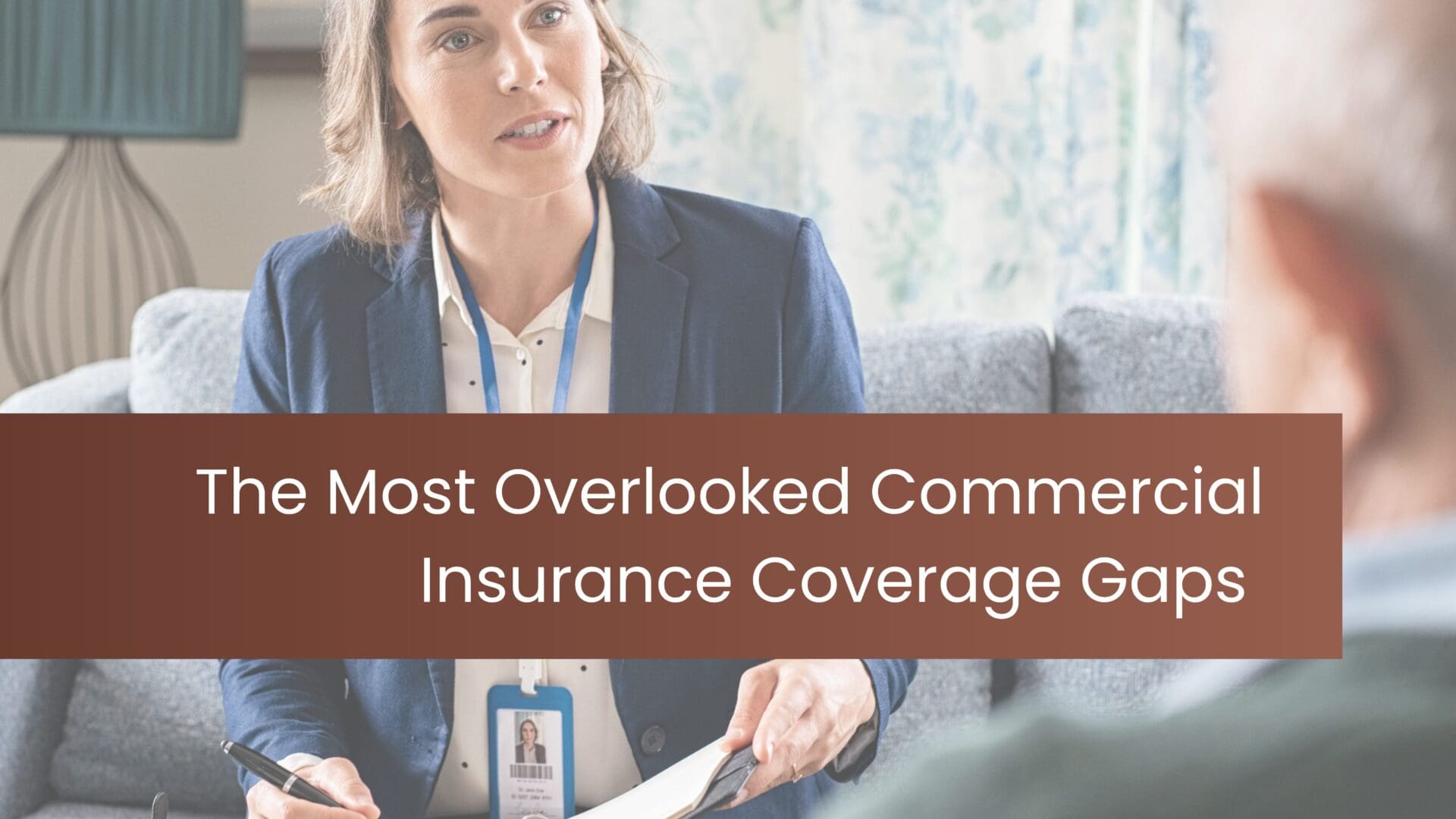Avoiding Costly Mistakes: The Most Overlooked Commercial Insurance Coverage Gaps

Commercial insurance is your go-to when it comes to protecting your business from the unexpected. However, business owners often overlook one key factor – coverage gaps that might leave you vulnerable in key areas. These gaps aren’t rare, but rather surprisingly common and can lead to denied claims, out-of-pocket expenses, or even legal trouble.
What is a coverage gap?
A coverage gap exists when your business faces a loss, but it isn’t fully or at all covered by your insurance policy. These gaps arise because either policies aren’t reviewed carefully, or they aren’t tailored properly to your actual business operations.
Common Commercial Coverage Gaps You Might Be Overlooking
Here are some common reasons that can lead to coverage gaps:
- Incorrect/Missing Named Insureds
If your business operates under multiple names or entities and not all of them are listed on the policy, your claim could get denied even if the accident is related to your operations. - No Hired and Non-Owned Auto Coverage
If your employees are using their personal vehicles for work, and your policy doesn’t include this coverage, then your business may be on the hook for accidents. - Professional Liability Assumptions
Typically, your general liability does not cover professional services. If your business is to offer consulting, design, or advice, you would need a separate professional liability (E&O) policy for yourself. - Employee Benefit Administration Errors
Suppose you want to give your employees specific benefits like health insurance or retirement plans. In that case, those will require specific coverage, which can be added as an endorsement or through a separate policy. - Umbrella Policies That Don’t Match
Commercial umbrella policies are only effective when aligned with the underlying policies. Limits, definitions, or exclusions – all need to be in line with the primary policies as inconsistencies can otherwise lead to dangerous blind spots. - Cyber Liability and Data Breach Exposures
Businesses assume their general liability or property policy would cover cyber-related incidents. Typically, it doesn’t. If you are dealing with sensitive clients or financial data, this is a necessity for you.
How to ensure your business is protected from coverage gaps
- Small changes in operations or staffing can change your shift profiles; therefore, ensure that you review your insurance needs annually.
- Be sure to ask your broker about everything, not just “am I covered?”, but about the limits and exclusions too.
- Pay extra attention to endorsements, sublimits, and exclusions. These are the little details that make or break your coverage.
- Ensure that you don’t just have the generic coverage, but tailored coverage that fits your needs. Your business is unique, so should be your insurance.
Having commercial insurance will only work effectively if it matches the risks that you are exposed to. Inadequate insurance coverage would lead to financial devastation, real quick. Ensure you protect your assets, investments, employees, and your peace of mind by identifying and closing the gaps in your coverage before they become a real problem.

